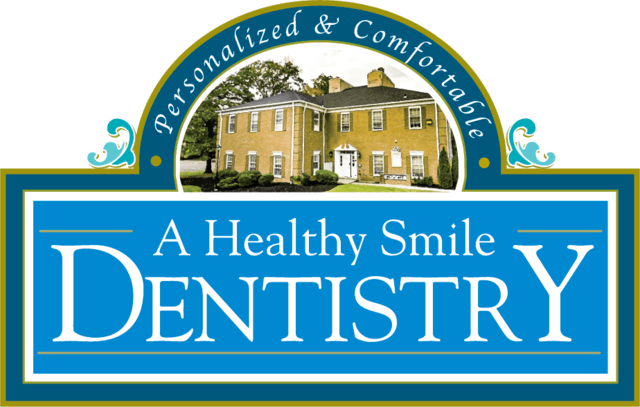Missing teeth can affect more than just the appearance of a smile—they can disrupt daily activities like speaking, chewing, and maintaining oral health. Patients seeking the Best Dental Care Service often turn to dental bridges as a reliable solution. Bridges fill gaps left by missing teeth, restoring functionality and providing support to surrounding teeth.
Consider a patient who has lost multiple teeth on one side of the mouth. Without proper replacement, chewing becomes uneven, pronunciation is affected, and the risk of shifting teeth increases. Dental bridges restore proper alignment and function, allowing natural oral performance to return.
Restoring Chewing Efficiency
Chewing is essential not only for nutrition but also for digestion. Missing teeth can make it difficult to bite and break down food, causing strain on remaining teeth.
Dental bridges distribute the bite force evenly across adjacent teeth, allowing patients to:
- Eat a wider variety of foods comfortably
- Reduce strain on neighboring teeth
- Prevent excessive wear or damage to remaining natural teeth
For instance, a patient with a missing molar may avoid certain crunchy or fibrous foods. After placement of a bridge, they regain the ability to chew without discomfort or hesitation.
Supporting Speech Clarity
Gaps in teeth can affect how the tongue contacts teeth and the roof of the mouth, impacting pronunciation. Dental bridges restore proper spacing, helping with:
- Clear enunciation of consonants like “s,” “t,” and “th”
- Natural speech patterns
- Improved confidence when speaking in social and professional settings
A patient who struggled with a lisp after losing front teeth may notice immediate improvement after bridge placement.
Maintaining Facial Structure
Missing teeth can lead to sagging or hollow cheeks over time. Bridges provide support to adjacent teeth and surrounding tissues, maintaining the natural shape of the face.
This structural support not only preserves aesthetics but also contributes to proper jaw alignment and function.
Preventing Teeth Shifting
When a gap exists, neighboring teeth may tilt or drift into the space, leading to misalignment. Bridges hold surrounding teeth in place, maintaining:
- Proper bite alignment
- Stability for remaining teeth
- Reduced risk of jaw discomfort or temporomandibular joint (TMJ) issues
Long-Lasting and Reliable
Dental bridges are typically made from durable materials such as porcelain fused to metal or ceramic. With proper care, bridges can last for many years, providing reliable function and improving oral health outcomes.
Key Advantages of Dental Bridges
- Restores chewing efficiency
- Enhances speech clarity
- Maintains facial structure
- Prevents shifting of surrounding teeth
- Long-lasting and reliable
Types of Dental Bridges
Dental bridges can be customized depending on the patient’s needs:
- Traditional Bridges: Anchored to natural teeth on either side of the gap.
- Cantilever Bridges: Supported by a single adjacent tooth, useful for areas with limited support.
- Maryland Bridges: Use a metal or porcelain framework bonded to adjacent teeth, often for front teeth.
- Implant-Supported Bridges: Anchored directly to dental implants for enhanced stability and support.
Comfort and Adaptation
Modern bridges are designed to fit comfortably in the mouth, with smooth edges and precise alignment. Patients often find that once they adjust, bridges feel natural and integrate seamlessly into daily activities like eating and speaking.
Oral Health Benefits
- Reduces stress on remaining teeth
- Helps maintain proper jaw alignment
- Prevents bone loss in the area surrounding the bridge
- Supports consistent oral hygiene by filling gaps that might otherwise trap food particles
Real-Life Impact
- A patient missing two molars regained full chewing ability after bridge placement.
- Another patient’s pronunciation improved noticeably after replacing missing front teeth with a bridge.
- Bridges prevented further shifting in a patient with multiple missing teeth, stabilizing bite alignment.
- Facial structure and smile aesthetics were restored, boosting confidence in social interactions.
Maintenance Tips
Proper care ensures the longevity and effectiveness of dental bridges:
- Brush twice daily with a soft-bristle toothbrush.
- Floss carefully under the bridge using specialized tools like floss threaders.
- Rinse with antibacterial mouthwash to reduce plaque buildup.
- Schedule regular dental check-ups to monitor the condition of the bridge and surrounding teeth.
- Avoid excessively hard or sticky foods that may damage the bridge.
Enhancing Overall Oral Function
Bridges not only improve chewing and speech but also contribute to:
- Even distribution of bite forces, reducing stress on individual teeth
- Proper alignment, preventing TMJ issues
- Better oral hygiene, as gaps no longer trap food debris
- Long-term preservation of remaining teeth and gum health
Aesthetic Advantages
Dental bridges are crafted to match the color, shape, and size of natural teeth, offering a seamless appearance. Patients often report increased confidence and satisfaction with their smile, as bridges restore the natural harmony of the mouth.
Comparing Bridges to Other Tooth Replacement Options
| Feature | Dental Bridges | Dentures | Implants |
|---|---|---|---|
| Stability | Fixed | Removable | Fixed |
| Chewing Efficiency | High | Moderate | Very High |
| Speech | Improved | May slip | Excellent |
| Longevity | 10-15 years | 5-7 years | 20+ years |
| Jawbone Preservation | Moderate | Low | High |
This comparison highlights how bridges provide a balanced solution for function, aesthetics, and stability.
Combining Bridges with Preventive Care
Dental bridges perform best when patients maintain consistent oral hygiene and regular dental visits. This ensures:
- Surrounding teeth and gums remain healthy
- Early detection of any issues with the bridge
- Long-term durability and performance
Conclusion
Dental bridges offer a reliable, functional, and aesthetically pleasing solution for missing teeth. They restore chewing efficiency, enhance speech, maintain facial structure, and prevent teeth from shifting. For patients seeking the Best Dental Care Service, bridges provide an effective approach to regain confidence, oral function, and long-term oral health.

